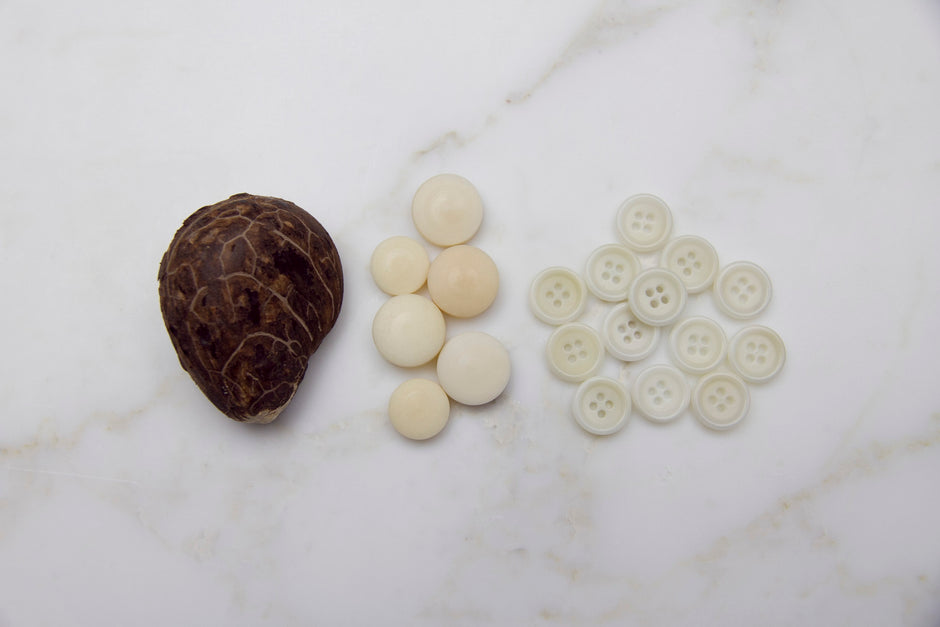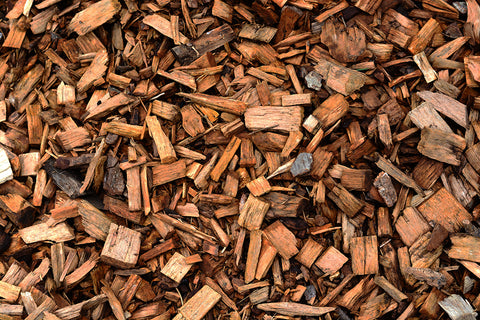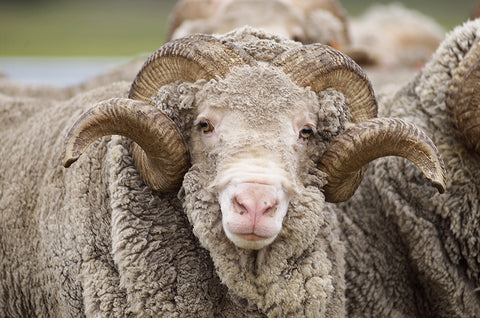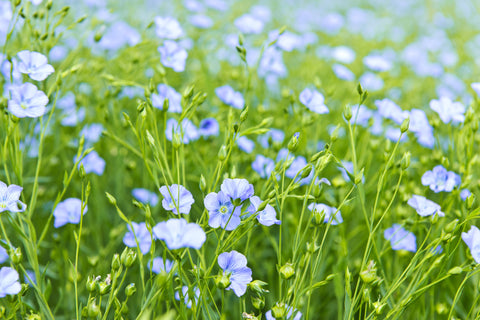Corozo, the quality material that completes your favourite garment.
Extremely durable buttons.
The corozo nut coming from the tagua tree – also known as Vegetal Ivory – has been the preferred material for button production for decades. It has a unique grain pattern, delivers scratch-free buttons and is extremely durable. But when plastics made their way into the fashion industry, Corozo was forgotten by the grand manufacturers. It hasn’t been easy finding a supplier who still masters the art of Corozo production. But we were able to pinpoint a small family business in Portugal that still produces quality Corozo buttons. Since then, Alcino is our button master who makes all our buttons just outside of Porto.

Corozo? Here’s what you need to know
Corozo originates in South-America. It grows on the Tagua tree, in the lowland rainforests of Peru, Colombia, Ecuador and Panama. Each Tagua plant produces up to 15 fruit clusters – or mocacha. Each mocacha contains 30 seeds, which are called Corozo – or Tagua nuts.
It’s called Vegetal Ivory because it shares certain similarities with its animal counterpart. It has a beautiful grain pattern, it’s impressively durable and cannot be scratched. Did you know the scientific name for Corozo is derived from the Greek word for elephant? However, this vegetal variation doesn’t harm any wildlife – and that’s an essential plus.
How sustainable is corozo?
It’s naturally harvested
Corozo can only be collected after it has fallen from the tree. Otherwise the Corozo isn’t strong enough for button production. Locals collect the fruit from the forest floor year-round, the seeds are extracted and carefully dried.
It’s a renewable resource
No trees have to be cut down. And once mature, a Tagua tree can produce up to 25 kilograms of nuts, for over a hundred years.
It’s durable
The tightly wound organic fibers make for outstanding scratch resistance and high durability.
It’s natural
Corozo is a completely biodegradable product. And a great alternative for plastic that takes a greater toll on our environment each year.
It’s good for the local economy
The Tagua industry isn’t the largest industry in the region, but it’s still the main source of income for over 30.000 local Ecuadorian families.
It helps protect the rain forest
Corozo production generates up to 5 times the income of banana plantations and cattle ranches. While these industries damage the rain forests intensively, Corozo production is organized in balance with the local environment. The more the Corozo industry grows, the greater the incentive to prioritize this industry.




